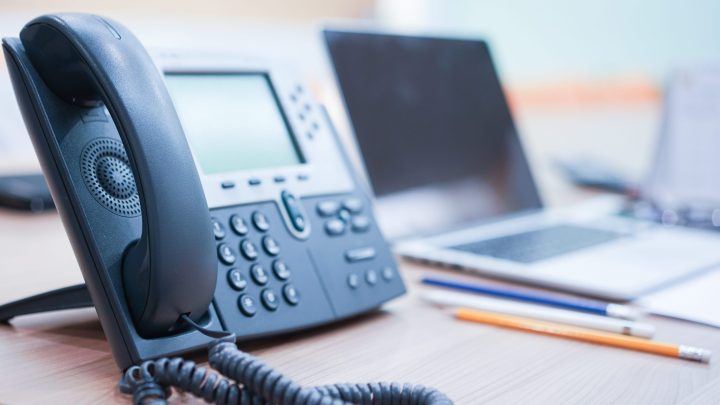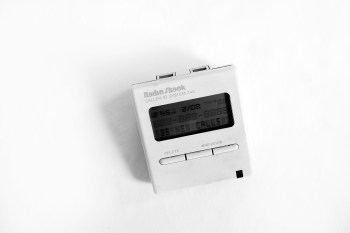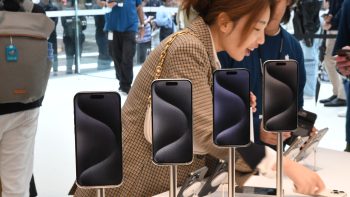
As work communication migrates to mobile devices, desk phones hang up for good
As work communication migrates to mobile devices, desk phones hang up for good

Barely a quarter of adults in the U.S. still have landline phones, and it may be getting harder for them to hold on. Companies like AT&T are looking to get out of the landline business altogether and transition their copper lines to fiber-optic ones. Mobile devices are increasingly taking over in the business world, where the desk phone once reigned as the king of office communication.
Juliet Peay can still visualize the massive desk phone at her first job out of college in 2016.
“It was one of those big, serious phones,” she said. And it rang constantly.
“I want to say, like, I was on the phone, like it was my job, but it literally was my job,” she said.
Peay was the receptionist at a patent law office in Greenville, South Carolina, with about 100 employees. She had a phone voice and a big printout of office extensions, which she marked with asterisks — like who wanted calls sent to voicemail or transferred to an assistant.
“It was everything. It was absolutely everything,” Peay said.
And then, nothing. In subsequent jobs, Peay said, she found herself suddenly without that bulky piece of equipment. She now works in marketing at a real estate firm, which had kept a few desk phones for senior staffers. But even those people were recently told they need to give them up.
Barb Grothe is an independent communications technology consultant who’s worked on corporate telephony systems since the 1980s.
”There’s nothing about the desk phone that I miss,” she said.
She first noticed companies getting rid of the curly-corded hardware in the early 2010s, when internet-based phone systems became the norm. Workers could make calls on their computers or route them to a smartphone. Then there was the rise of video calling and instant-messaging apps.
“Now with hybrid work and since COVID has happened, you know, give me my laptop and give me my cellphone and I’m a happy camper,” Grothe said.
Desk phones are still common in industries like government and health care, where security is a top concern. But she said many other businesses no longer want to shell out to upgrade equipment that now feels unnecessary.
That’s because work has shifted off the desk, said Sharon Storch, an organizational communications professor at the University of Nebraska at Omaha. “And it moves with us in every space and in any time.”
Not being tied to a hardwired, fixed-location device means it’s hard to step away from work, literally.
“When there’s no turnoff switch, then that’s when things start to occur as far as burnout,” she said.
Smartphones contain worlds that can easily suck you in, Storch said, like a work email arriving while you’re having dinner with your family. Or the reverse.
“You’re in the middle of a really big meeting or you’re trying to really focus and have some deep work time. Then you pick up your phone, if you’re using it for both, and you got a picture of your dog just finished being groomed or you got a picture of the home security camera that dinged because your mailman came.”
And the costs are often more than psychological, said Keri Stephens of the Technology and Information Policy Institute at the University of Texas at Austin.
”Organizations are asking their employees to use their personal devices, and quite often in the U.S., it’s without additional compensation,” she said.
Only a handful of states require employers to reimburse staff for using their cellphones for work.
“Not everybody does have unlimited plans,” said Stephens. “And not everybody wants their personal device to be used for work.”
Juliet Peay, at the real estate office in South Carolina, said she tries not to give out her personal number for work and sticks to email and Zoom calls.
“Now that personal and business are completely together, like peanut butter and jelly, I do not want people having that much access to me,” she said.
One of her colleagues is even considering buying a cheap flip phone to leave at the office.
There’s a lot happening in the world. Through it all, Marketplace is here for you.
You rely on Marketplace to break down the world’s events and tell you how it affects you in a fact-based, approachable way. We rely on your financial support to keep making that possible.
Your donation today powers the independent journalism that you rely on. For just $5/month, you can help sustain Marketplace so we can keep reporting on the things that matter to you.

















